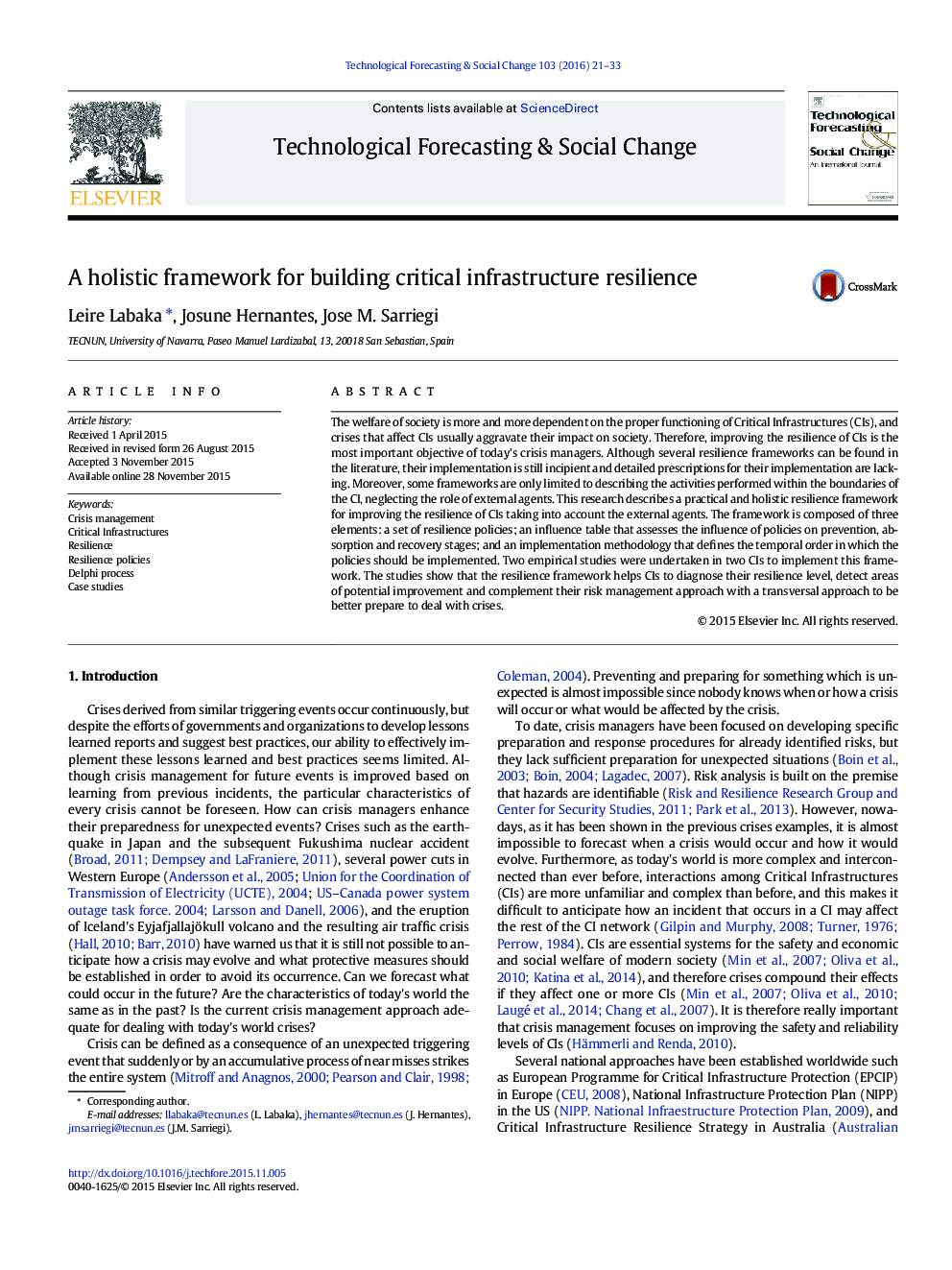| Article ID | Journal | Published Year | Pages | File Type |
|---|---|---|---|---|
| 7256156 | Technological Forecasting and Social Change | 2016 | 13 Pages |
Abstract
The welfare of society is more and more dependent on the proper functioning of Critical Infrastructures (CIs), and crises that affect CIs usually aggravate their impact on society. Therefore, improving the resilience of CIs is the most important objective of today's crisis managers. Although several resilience frameworks can be found in the literature, their implementation is still incipient and detailed prescriptions for their implementation are lacking. Moreover, some frameworks are only limited to describing the activities performed within the boundaries of the CI, neglecting the role of external agents. This research describes a practical and holistic resilience framework for improving the resilience of CIs taking into account the external agents. The framework is composed of three elements: a set of resilience policies; an influence table that assesses the influence of policies on prevention, absorption and recovery stages; and an implementation methodology that defines the temporal order in which the policies should be implemented. Two empirical studies were undertaken in two CIs to implement this framework. The studies show that the resilience framework helps CIs to diagnose their resilience level, detect areas of potential improvement and complement their risk management approach with a transversal approach to be better prepare to deal with crises.
Related Topics
Social Sciences and Humanities
Business, Management and Accounting
Business and International Management
Authors
Leire Labaka, Josune Hernantes, Jose M. Sarriegi,
